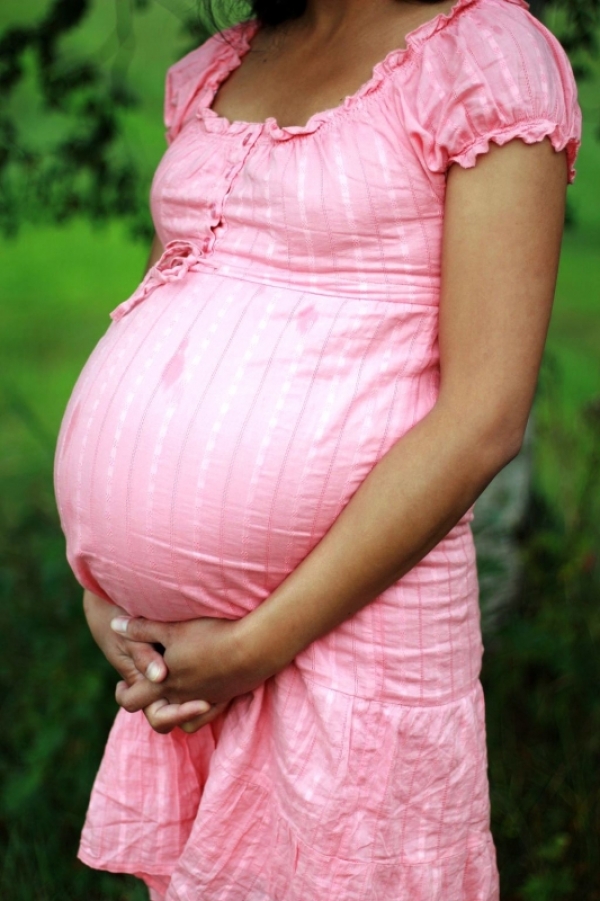

By Øyvind Holmstad (Own work) [CC BY-SA 4.0 (http://creativecommons.org/licenses/by-sa/4.0)], via Wikimedia Commons.
19 November 2015
A total of 20,833 school-going girls fell pregnant in South Africa in the 2013-14 year, according to official statistics. A staggering 717 of them were at primary school.
These statistics reflect only reported cases, and unreported pregnancies could inflate the number substantially.
The Equal Education Law Centre (EELC) has acted on behalf of learners facing threats of suspension or expulsion, and others being refused a catch up plan for missed contact time with teachers. Some attend schools that refuse to allow a learner to return to school for at least a year after her baby has been born.
In one case, a school required a pregnant learner’s family to pay a “deposit” in case she required medical treatment. The school would not let her continue to learn if the impoverished family could not produce the money.
These practices are unlawful and constitutionally unacceptable. In the 2013 Welkom/Harmony case, the Constitutional Court made it clear that differentiating between learners on the basis of pregnancy constituted unfair discrimination. The case involved two schools whose policy was to automatically exclude pregnant learners for the year in which they gave birth. This meant that learners would fail to complete their grades and would have to repeat the grade the following year. Yet both schools were aware of a circular issued by the Department of Education, stipulating that learners may not be expelled on the basis of being pregnant and that pregnancy policies must not be punitive but “rehabilitative and supportive”.
The Constitutional Court made it plain that differentiating between learners on the basis of pregnancy constituted presumptively unfair discrimination, prohibited by section 9(3) of the Constitution. In addition, the Court addressed the fact that the policies also differentiate between male and female learners, which, the Court held, also results in presumptively unfair discrimination. Furthermore, and significantly, the Court recognised that such policies infringe upon various rights of children, including a learner’s right to basic education.
Yet many schools continue to discriminate against pregnant learners. More than two years after the Court’s ruling it is not clear what, if anything, the Department of Basic Education (DBE) has done to ensure that schools draft and implement learner pregnancy policies which provide affected learners with guidance and support.
The Western Cape Education Department has developed a policy on managing learner pregnancy. However, no such policy exists at a national level. While a five-year strategic plan for 2016/17 to 2019/20 states that the DBE is in the process of developing a pregnancy policy, the status of this policy is unknown.
It is disappointing that, though it provides for access to condoms in schools, the Department of Education’s 2015 draft policy on HIV/AIDS in schools does not connect the importance of condom distribution to issues relating to learner pregnancy.
In the absence of clear national policies and effective implementation, pregnant learners continue to be excluded from schools and discriminated against. Step-by-step guidelines for schools and regular training are required to ensure that schools are aware of their constitutional duties. In addition, a frank approach to addressing the high incidence of pregnancy among school-goers is needed.
Finally, a tough stance must be taken against principals and educators who ignore constitutional rights. In some cases, there may be a need for legal recourse against those individuals, in their personal capacities, for the infringement of children’s rights to education, dignity and equality.
It is our individual and collective responsibility to care for our children and ensure that the right to basic education is realised in South Africa. No girl should be turned away from school, and pregnant learners must be accommodated by South Africa’s schools, and afforded access to education during and after pregnancy.
Chandre Stuurman and Demichelle Petherbridge are with the Equal Education Law Centre, a public interest organisation which uses legal advocacy and strategic litigation to advance rights to basic education and equality. Views expressed are not necessarily those of GroundUp.